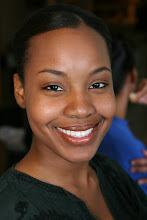Since saying yes to homeschool I've researched learning styles and curriculums, and followed other homeschoolers online through blogs and YouTube channels. I even started one on my own about 10 years ago. Recently I got in the mood to watch some of my old footage and traced my interest to classical education to my very first vlog. I was pleasantly surprised to find that my interests circled back to what I've always found interesting and relatable in my education alignment. In the fall of 2021 I settled on classical education with an eclectic approach. I like classical education because it provides a framework for learning that educators can follow easily. The learning is referred to as the trivium, its three stages are grammar, logic, and rhetoric. I've found that by having this guideline I've been able to make sense of the final destination for our homeschool goals.
The Trivium
The three stages of classical education are divided into four year increments. The first stage of learning is grammar, it organizes grades 1-4 and mainly focuses on the memory of facts. The second stage is logic and covers grades 5-8 where students begin to make sense of many of the facts they've learned and create opinions about those facts. The final stage of the trivium is rhetoric, for grades 9-12, it is here that students take use of all the facts of various subjects, along with their understanding of those things and begin to form opinions they can share through spoken and written language.
As a structured personality type I love the practical nature of the classical philosophy. Our family isn't formally involved in a classical group, I take what I research and make it fit the scope of the trivium. Since 2021 I can say that our learning has become enjoyable and challenging. I've always had the outlook of the three R's of learning at the core of our learning, Reading, Writing, and Arithmetic. But the incorporation of classical education has allowed us to venture into a solid inclusion of history, languages, and science.
How is classical education inclusive of all cultures?
There's an air to the classical world that may appear to elevate the western world and its ideals, namely the European story. This alone can be a turn off to those who feel they want to show a different world to their children. I completely understand those sentiments. For us however, I've found that by pressing into those things which at first made us very uncomfortable we've found a sweet spot, learning for information while growing in our own identity and cultural leanings.
We center our classical education on World History. This alone has been a game changer. There are co-ops that guide children in "what" to learn in classical education, but what we follow is history itself. I also use my experience as a guide by first identifying the things I wished I learned in school. So, for the grammar stage I simplify our direction by just thinking about things I want the kids to know like the states of our country, the countries of the world, the US presidents, and so forth. For logic I think of asking my middle grader lots of questions and encourage her to have opinions. We haven't entered the rhetoric stage at this point in our journey but at that time I will incorporate a formal logic curriculum along with the art of debate.
Classical Choices
For all of my kids we use a mixture of "tried and true" resources along with new school options. I've found resources from educators that are classically focused and incorporate resources other classical homeschoolers use as well. Reading good books is a must in our homeschool setting. I love the challenge of classical books, these are books that have stood the test of time. Many of them are regarded as classics from suggested reading annotations to education forums and blogs. I've also had to reach deep to incorporate African Diaspora classic stories as well. These are well written stories from all over the world about black people or written by black authors. It is important to us that our family understand the excellence that black people have contributed to the world of academics without it always having to be a slave narrative or suggestions of oppression or inferiority.
It is also important to train the mind for advanced ideas. When I got to college I found that the area of philosophy and religion was out of my ability of reason. The content was so foreign and challenging that I found myself dismissing the importance of tough ideas. I don't want that for my children. The more we read challenging materials the easier it becomes. We look up challenging words all the time and create a growing list of words to learn.
Here is a list of helpful resources that we use in our homeschool setting:
- Susan Wise Bauer's Well Trained Mind: This was my starting place as the ultimate classical homeschooling reference resource. This book breaks down every main education subject according to grades and provides a variety of suggested curriculums and reading books.
- Classic book lists (Marva Collins and Ambleside Online)
- The Bible
- Math U See
- Life of Fred
- McGuffey Readers
- Ray's Arithmetic
- Kingfisher Encyclopedia History of the World
- Easy Peasy
- Houghton Mifflin Reading Series (Bells, Drums, Trumpets, Adventures, etc)
- Youtube Playlists (Spanish, and geography songs)
- Public Library Interlibrary system (I love to place good books on hold, it saves time and I can ensure the books are actually worth the read)
- A globe!

0 comments:
Post a Comment